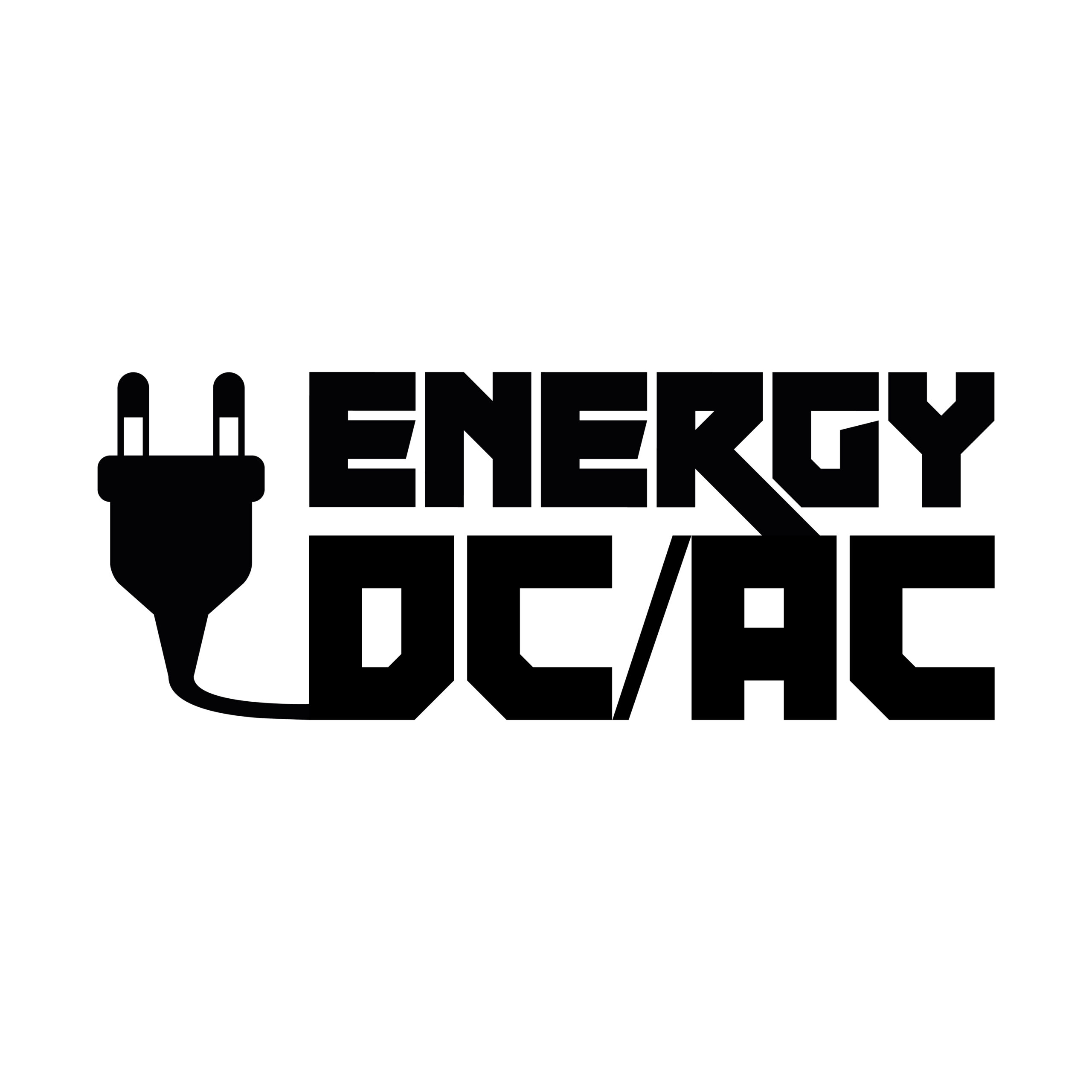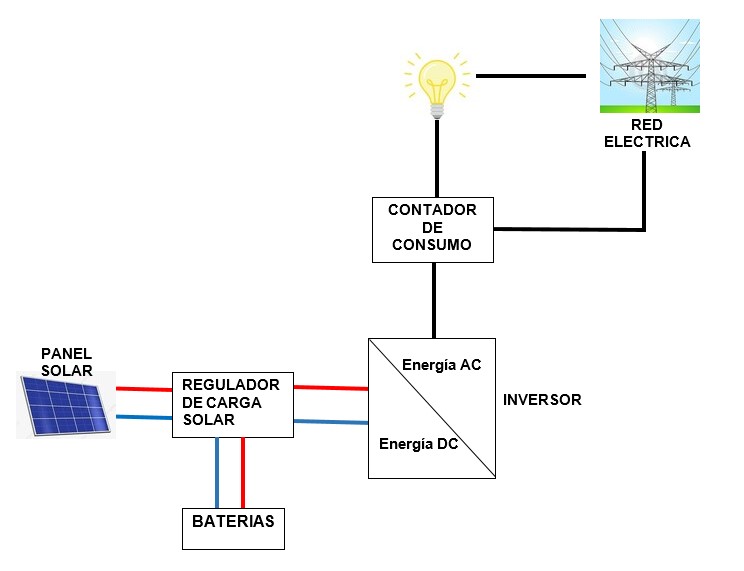With this post, we conclude the series on an affordable photovoltaic system. We’ve provided you with the best equipment suggestions to help you build a low-cost solar energy system for your home.
Finally, in this post, we include a summary of the equipment and benefits you can obtain on a budget.
To provide context, we invite you to read the mentioned series. Starting with the article The solar panel and wiring for a low-cost solar energy system for your home.
Minimum equipment you should acquire for your affordable photovoltaic system
Here we present the minimum solar equipment you should acquire with their characteristics for you to enjoy an inexpensive and functional photovoltaic system.
- One (1) 500 W photovoltaic solar panel. If you live in an area where most days are sunny, you can buy a polycrystalline technology panel
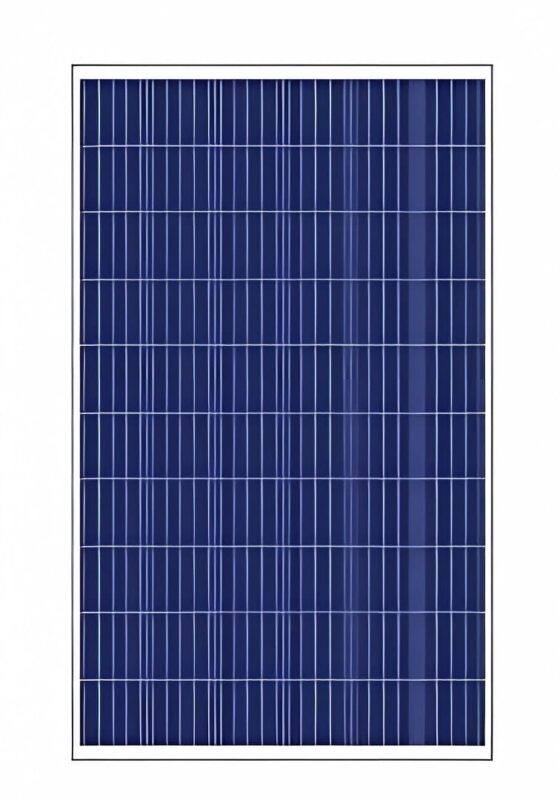
If, on the other hand, solar exposure is limited to a few hours a day, then a monocrystalline technology solar panel is more suitable.
However, the price difference between the two is about 10 to 20 $. Therefore, we suggest stretching your budget a bit and acquiring the monocrystalline one, which is more efficient and will provide higher performance
- Thirty (30) meters of cable for a solar energy system, divided into 2 strips of 15 meters each, with insulation of different colors. It is preferable for one to be red, for the positive pole, and the other blue, for the negative pole.
The conductor can be made of copper or aluminum. The important thing is that it supports at least a power of 1000 W or 80 A at 12 Vdc and is flexible. This way, it will also be useful for up to 2 solar panels of 500 W each.
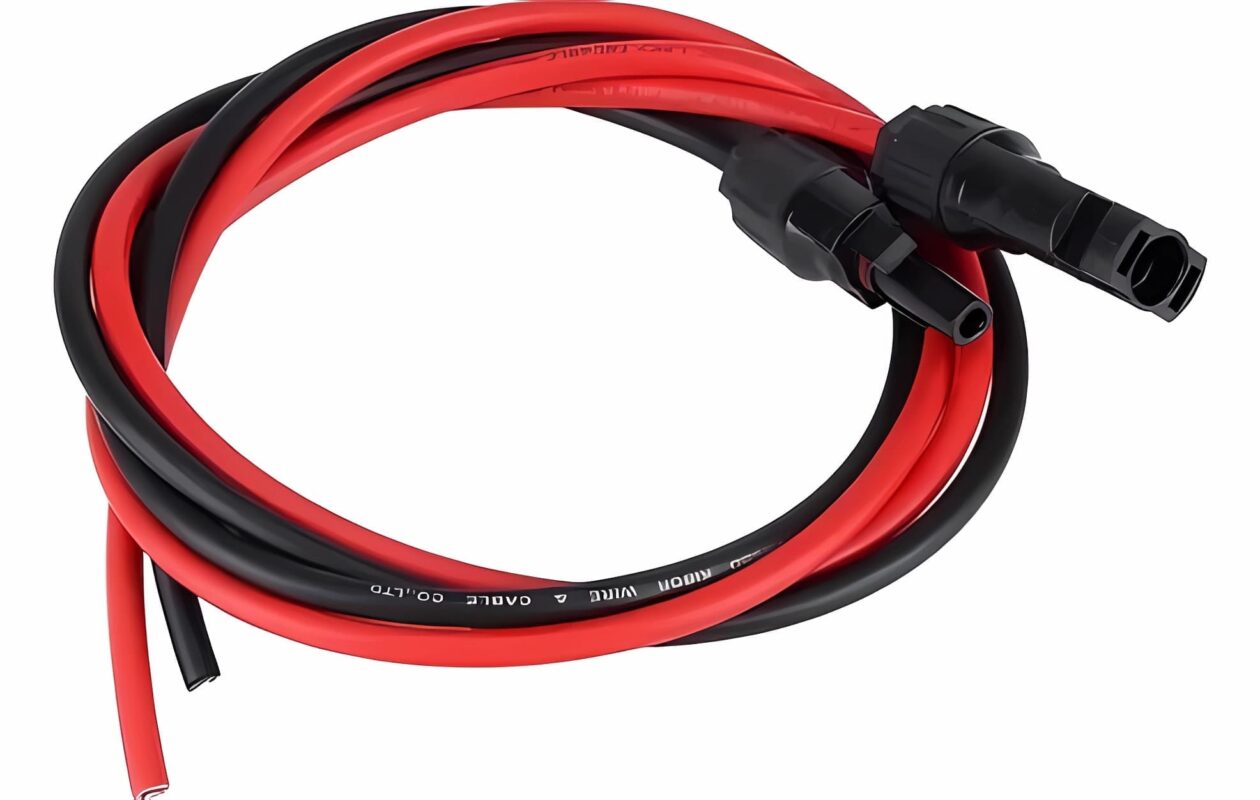
- One (1) PWM solar charge controller, for a minimum DC input current of 80 A at 12 Vdc
In our comparison The 5 best solar charge controllers with PWM technology we recommend the best. Don’t forget to check it out!
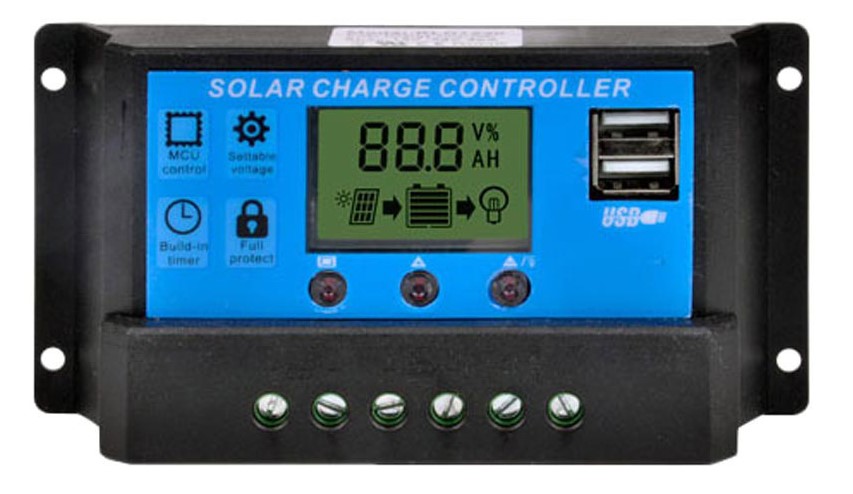
- Regarding the cable for the connection between the solar regulator and the battery or between the solar regulator and the inverter, it must have the same characteristics as the one used for the connection between the solar panel and the solar charge controller.
- Two (2) sets of MC4 solar connectors, male and female. You can purchase them in the simple type or the «Y» type, so you have a reserve connection in case you want to connect a second solar panel.
The connection of these elements to the cable should be done with specific tools. Therefore, we advise you to have it done by qualified personnel.
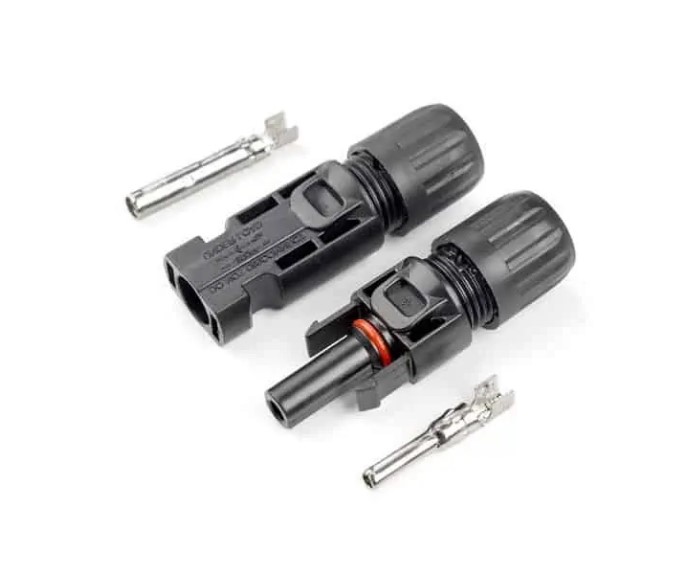
- Four (4) solid-tip connectors, which allow the connection of cables to the solar regulator. This will provide a more secure and firm connection
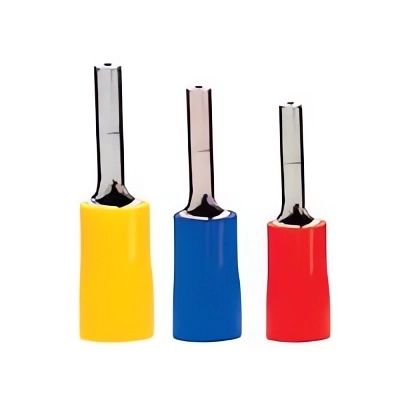
If you are going to use a backup battery, you should consider 2 connectors suitable for the battery terminals. Prefer those made of bronze, as they provide greater and better conductivity.
Additionally, you should purchase suitable cable terminals for the connection to the inverter. These are usually ring-type, and although the inverter often includes them, it doesn’t hurt to verify when purchasing.
One (1) inverter with a 12 Vdc input and an output voltage that matches any power outlet in your home. This will depend on the electrical regulations in your country. The inverter should be of modified sine wave technology and have a power rating of 700 W.
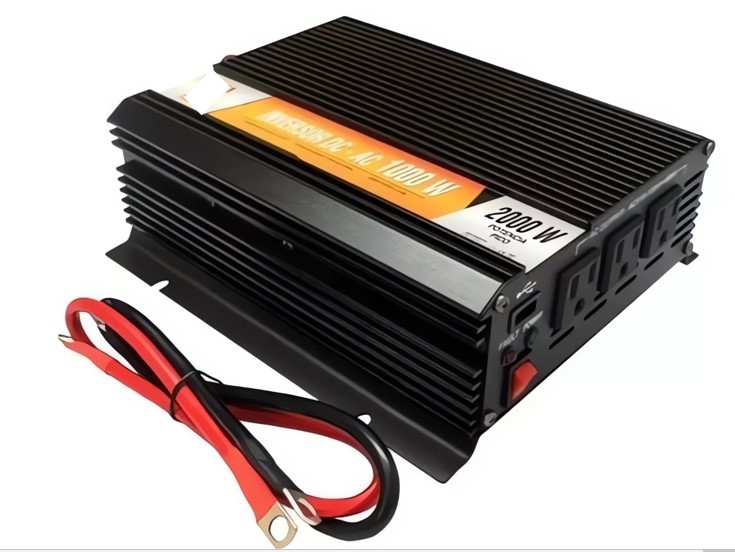
Now, we recommend getting a 1400 W inverter. This is only if you plan to acquire another 500 W solar panel to expand the capacity of your affordable solar power system.
To help you choose the most suitable equipment, we have prepared the best comparisons for you to make an informed purchase. They are:
Amazon.com
- 5 Best Modified Sine Wave Inverters up to 1000 W on Amazon.com
- The 5 best solar charge controllers with PWM technology
- Top 5 modified sine wave inverters from 1200 to 3000 W. Amazon.com
Optional
One (1) car battery with a capacity of around 1000 Ah for starting energy, which would be about 60 Ah in slow discharge, the latter being what interests us
Finally, we suggest acquiring as many power strips as your inverter has outlets. This will allow you to multiply your equipment connections, providing greater convenience for powering your loads.
In the energydcac blog, you’ll find a wealth of high-quality content related to this equipment, as well as various topics on AC and DC electrical energy that will be very useful. Check them out, and you’ll see!
Likewise, we invite you to subscribe for free to our website to receive our weekly newsletters updating you on our articles. What are you waiting for?
